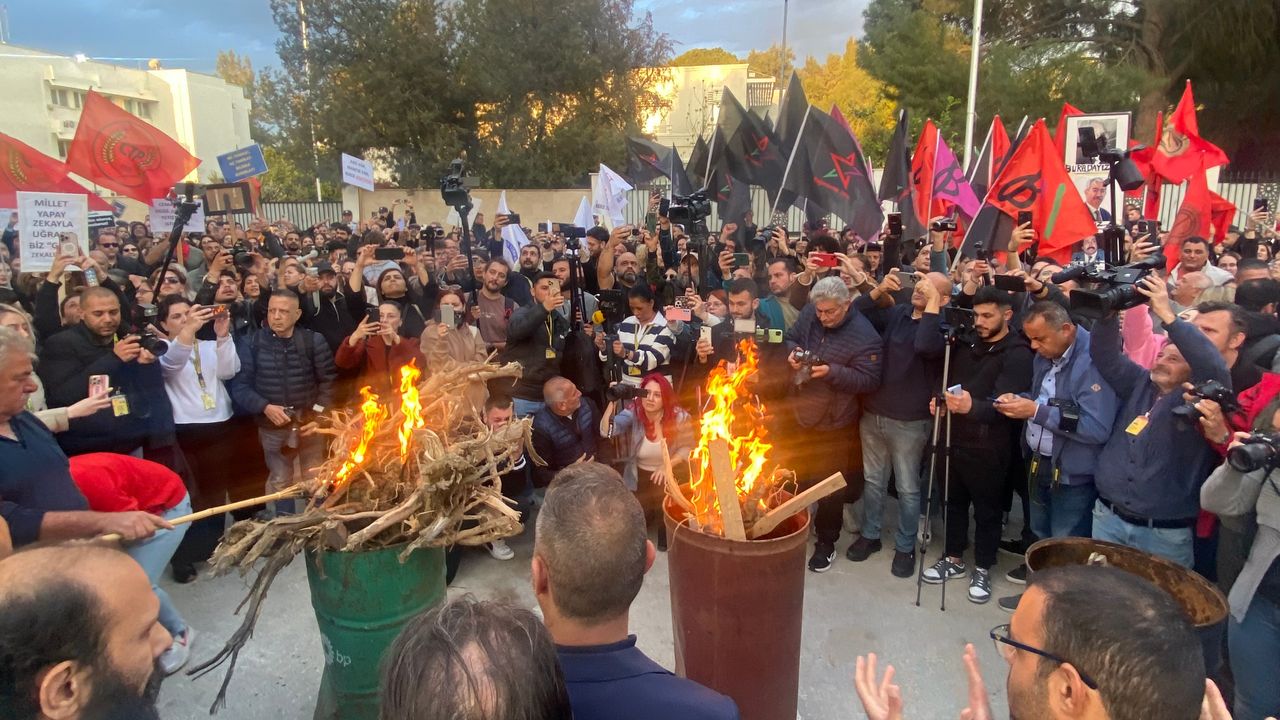The controversial regulation, which would permit female students to wear Islamic headscarves in secondary schools, has triggered widespread protests across the Turkish Cypriot community. More than 50 organizations, unions, and political parties have united in opposition, with demonstrations ongoing and threats of a general strike if authorities don't withdraw the regulation by April 28.
Selma Eylem, General Secretary of the Turkish Cypriot Secondary School Teachers' Union (KTOEÖS), described the regulation as a "coup" aimed at transforming education and implementing "social engineering" in the community. "This is not an issue of headscarves, regulations, or freedom. It is an attempt by Turkey's ruling Justice and Development Party (AKP) to deepen the dominance of political Islam in the northern part of our island," Eylem told CNA.
Burak Mavis, President of the Turkish Cypriot Teachers' Union (KTÖS), emphasized that the issue isn't about individual freedom but rather about imposing religious symbols on minors. "While it's scientifically accepted that individuals under 18 lack the developmental competence to make their own decisions, it's misleading to consider an ideological and symbolic choice like the headscarf as free will," he stated, adding that the state's duty is to protect vulnerable age groups from religious pressure.
Şener Elcil, a veteran union leader, placed the controversy within a broader historical context, describing it as "part of Turkey's long-standing colonial activities in the northern part of our island." He accused Turkey of selectively invoking religious freedom while simultaneously restricting the religious rights of Orthodox Christians and Alevis in northern Cyprus.
All three union leaders rejected comparisons made by Turkish media between current protests and Turkey's 'February 28' military intervention of 1997, which overthrew an Islamist-led government. Mavis stressed fundamental historical, political, and sociological differences, noting that in Cyprus, women wearing headscarves have never been barred from universities or public service. The 'February 28' intervention, often referred to as the 'post-modern coup', was a significant event in Turkish political history where the military forced the resignation of the Islamist-led government. This context is crucial to understand the union leaders' rejection of the comparisons.
Protest actions have already begun, with demonstrators lighting a 'protest fire' outside parliament on April 14. The 'protest fire' was a symbolic act of resistance, representing the burning passion of the protesters against the regulation. Union leaders have announced plans for legal challenges, international outreach to organizations, including the European Union, and potential strike actions if the regulation isn't withdrawn.
The controversy highlights growing tensions over Turkey's influence in northern Cyprus, with union leaders accusing local authorities of acting as a "puppet government" carrying out Ankara's instructions. This dispute appears to be the latest flashpoint in ongoing concerns about what some Turkish Cypriots see as attempts to transform their community's traditionally secular character.
